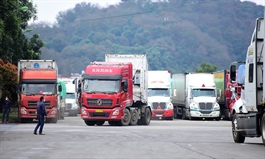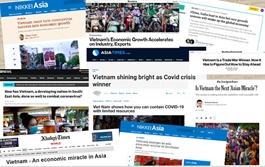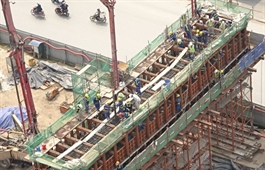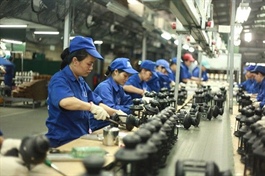Thai investment in Viet Nam increases
Thai investment in Viet Nam increases
Data from the Ministry of Planning and Investment showed that Thailand had 40 new registered projects, 23 projects registering for capital adjustment and 100 capital contribution and share purchases in Viet Nam with total registered capital of nearly US$1.8 billion last year.

This number was more than double compared to 2019 and nearly seven times compared to the 2015-20 period.
Thailand currently is one of the nine largest investors in Viet Nam with a total accumulated investment capital of $12.8 billion by the end of last year, equivalent to 603 projects.
Thai investors are interested in diverse fields in Viet Nam, mainly processing and manufacturing, clean energy and real estate.
Talking to Cong Thuong (Trade and Industry) newspaper, Pannakarn Jiamsuchon, Thai Trade Counsellor to Viet Nam, said that in addition to the constantly improving investment environment, Viet Nam's participation in many free trade agreements (FTAs) was highly appreciated by Thai businesses and they were very interested in expanding investment in Viet Nam.
Thai investors in Viet Nam also wanted to expand their investment, while new investors were also interested in seeking investment opportunities in Viet Nam so that they could benefit from the FTAs.
The strategic partnership between Viet Nam and Thailand is developing strongly and comprehensively in all fields, especially economic, trade and investment co-operation.
In the context of the COVID-19 pandemic, Thai investors are increasing their investment, merger and acquisition activities in Viet Nam.
Gulf Energy Development PLC, a leading Thai private power producer, recently announced plans to acquire 70.5 per cent of Global Mind Investment Management (GMIM)’s shares from Nech Opportunities Fund VCC, worth US$40 million (Bt1.2 billion) to expand investment in Viet Nam.
The Government of Thailand has adopted a strategic plan on the bio, circular and green (BCG) economy to drive economic growth from 2021 to 2026.
The five-year strategic plan was approved at the first meeting of a management committee to drive the BCG economy chaired by Prime Minister Prayut Chan-o-cha on January 13.
The BCG strategic plan covers four sectors: farm and food; healthcare and medical services; energy and biochemicals; and tourism and the creative economy.
According to the Thai trade counsellor his government first plans to develop the bio-economy, as Thailand has more than 30 million people working in the farm sector, yet most of them remain in poverty.
The development plan calls for the government to increase the value of farm products and generate more income for the farm sector.
It aims to generate 4.4 trillion baht ($146.5 billion) worth of income, or 24 per cent of GDP, and create 16.5 million jobs by next year, up from Bt3.5 trillion in 2019.























